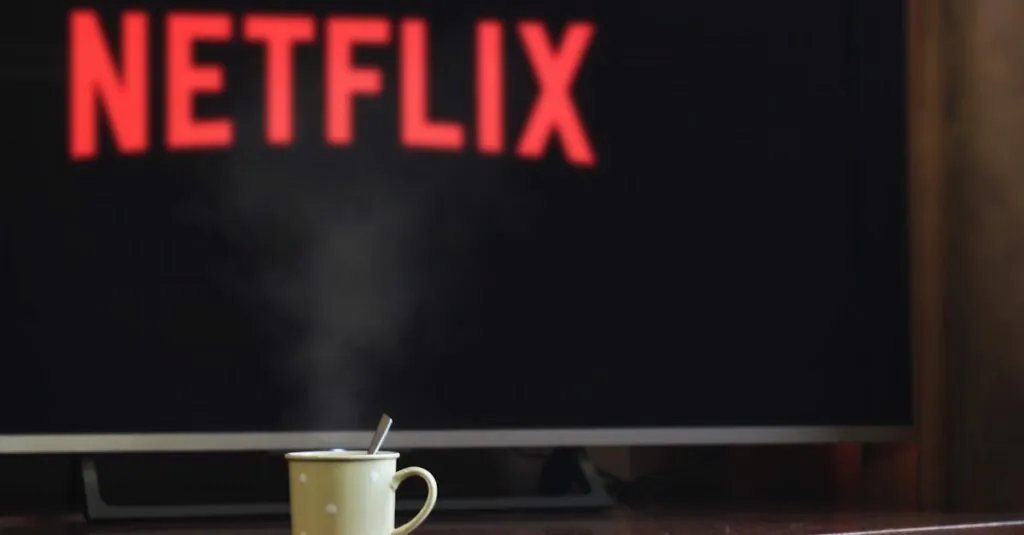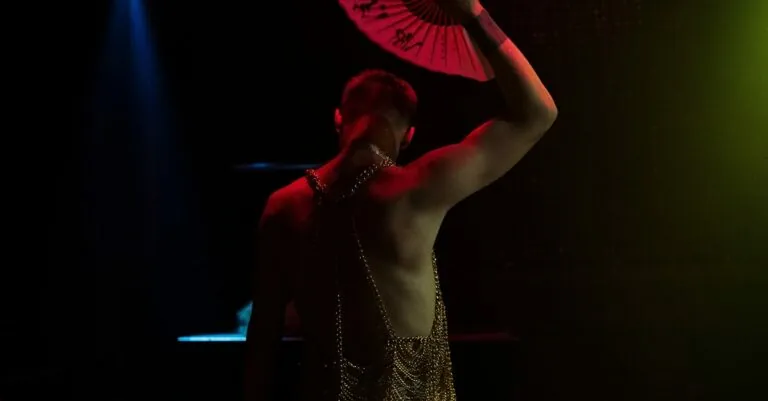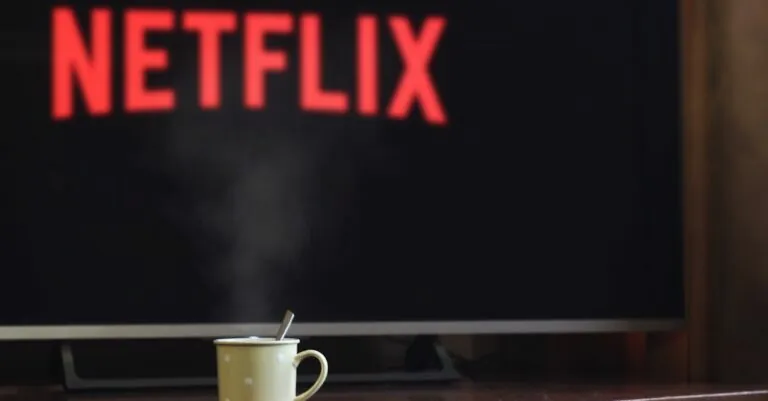Table of Contents
ToggleAs the credits roll on a beloved series, fans often find themselves grappling with a mix of excitement and disappointment. TV finales spark heated debates that can turn friends into frenemies faster than you can say “plot twist.” Everyone’s got an opinion, and let’s be honest, some of those opinions are hotter than a chili pepper on a summer day.
From the shocking twists that leave viewers gasping to endings that feel like a punchline nobody asked for, these finales are a goldmine for hot takes. Whether it’s a character’s unexpected demise or a romantic pairing that had fans scratching their heads, the conversations that follow are as entertaining as the shows themselves. Buckle up as we dive into the wild world of TV finale hot takes, where every opinion is valid and every fan has a story to tell.
Overview of TV Finale Hot Takes
TV finales evoke a whirlwind of emotions among fans. Mixed feelings often arise when a beloved series wraps up, leading to excitement and disappointment. Viewers debate character arcs and plot resolutions intensely. These discussions sometimes strain friendships, as fellow fans hold differing opinions.
Reactions to shocking plot twists can vary significantly. Some viewers celebrate unexpected outcomes, while others feel frustrated by perceived inconsistencies. Discontent might even arise from how finales honor or betray earlier storylines. Consequently, finales often serve as a focal point for passionate fan conversations.
Analyzing spoilers and predictions before a finale adds to the anticipation. Fans frequently engage in discussions on social media platforms, sharing their theories and feelings. Engaging in these dialogues enriches the viewing experience, creating a sense of community. Therefore, passionate debates surrounding finales often parallel the intricate narratives themselves.
Memorable finales become a topic of discussion, embodying the collective memory of a show’s journey. Fans revisit scenes and character significance, uncovering layers of meaning. Those who missed an episode may face online spoilers, further intensifying the urgency of finale conversations.
Critical responses often stem from unresolved plot lines or character decisions. Writers sometimes face backlash due to choices that alienate segments of the audience. In contrast, some finales achieve widespread acclaim, becoming benchmarks for storytelling excellence. These compelling elements keep fans active in discussions long after a series concludes.
Memorable TV Finales
TV finales leave a lasting impression, creating unforgettable moments that define entire series.
Celebrated Endings
Some finales achieve iconic status due to their emotional resonance and satisfying conclusions. “The Office” wrapped up with heartfelt goodbyes and a poignant return to the series’ core themes. Viewers appreciated the character arcs and the sense of closure provided. “Breaking Bad” concluded with a thrilling, action-packed sequence. Its final moments resonated deeply, reflecting Walter White’s transformation. “Friends” ended with the beloved characters leaving for new beginnings, perfectly capturing their evolution. Fans often cite these endings as reasons for their show’s enduring popularity.
Controversial Endings
Controversial finales often spark intense debates among fans, showcasing divided opinions. “Game of Thrones” faced criticism for its rushed conclusion and questionable character decisions. Many viewers expressed disappointment in how arcs unfolded, leading to widespread discussions. “Lost” left questions unanswered and generated frustration, alienating segments of its audience. “How I Met Your Mother” concluded with a surprising twist that upset long-time viewers, leading to backlash. Such endings illustrate the fine line between surprise and dissatisfaction in final episodes, keeping audiences engaged in discussions long after airing.
Common Themes in Hot Takes
Discussions around TV finales often reveal common themes that resonate with audiences. Fans frequently engage in debates about character arcs and plot resolutions, showcasing the emotional investment in storylines.
Character Arcs and Resolutions
Fans closely examine character arcs as finales unfold. Shifted relationships or unexpected decisions prompt reactions from viewers, with many dissecting these developments. Some appreciate the growth observed in their favorite characters, while others criticize unresolved storylines that leave them unsatisfied. When characters evolve significantly or deviate from their established personas, divisive opinions arise. Consequently, these responses highlight the delicate balance between fulfilling expectations and introducing transformative changes.
Plot Twists and Surprises
Surprise twists serve as a catalyst for intense discussions. Viewers relish the unexpected turns that challenge their predictions, while others express disappointment if surprises feel unearned. Many iconic finales, such as those from “Game of Thrones” and “Lost,” showcase the polarizing nature of these plot surprises. Engaging in debates about these moments helps fans process their emotions and explore possible alternate endings. As a result, the interplay between anticipation and satisfaction becomes a focal point of the finale’s impact.
Viewer Reactions to Finales
Viewer reactions to TV finales often manifest through lively discussions fueled by excitement and disappointment. Fans express varying emotions, and the buzz across platforms can be intense.
Social Media Buzz
Social media becomes a hotbed for expressing opinions immediately after a finale airs. Twitter threads light up with hashtags that encapsulate the finale experience. Fans share their shock or delight in real time, amplifying the conversation surrounding major plot twists. Instagram stories feature reactions, memes, and fan art that vividly capture emotional responses. Platforms offer an avenue for fans to debate character arcs and possible future directions, fostering community engagement. Posts often reflect the polarizing nature of finales, where some celebrate while others criticize perceived inconsistencies.
Critic Reviews
Critics provide another layer of analysis following a show’s conclusion. Many reviews delve into narrative choices and character decisions, influencing public perception. Publications often highlight the strengths and shortcomings, offering insight into why certain finales resonate or alienate viewers. Attention frequently focuses on how satisfying resolutions align with or diverge from established character arcs. Critics emphasize the importance of emotional payoff, linking successful endings to a series’ overall quality. Reviews also point out missed opportunities, fueling further discussions among fans about what could have been different in their favorite shows.
Impact of TV Finales on Legacy
TV finales significantly influence a show’s legacy and how audiences remember it. Viewers often associate a series with its ending, leading to strong emotional ties. Memorable conclusions can cement a show’s place in pop culture, making them iconic. Examples like “Breaking Bad” and “Friends” demonstrate how emotional resonance in finales keeps fans engaged long after the final episode.
Controversial endings, however, can reshape perceptions. Series like “Game of Thrones” and “Lost” show that polarizing conclusions may not only upset fans but also lead to intense debates. These discussions keep the show’s narrative alive in public discourse, illustrating the lasting impact of a finale. Critical opinions voiced on platforms can shift how new viewers approach these shows, affecting overall legacy.
Character arcs also play a crucial role in this impact. Dynamic character resolutions often lead to lasting fondness among fans. When endings satisfy character growth, audiences celebrate the journey, enhancing a show’s reputation. On the opposite end, unresolved plotlines can leave viewers frustrated. Discontent may steer fans away from recommending the series, ultimately affecting its longevity.
The community aspect of discussing finales further contributes to their importance. Fans gather on social media platforms to share reactions, amplifying the collective experience. They dissect narratives, celebrating triumphs or expressing grievances, turning finales into communal events. These vibrant discussions reinforce a show’s legacy, showcasing how finales serve as touchpoints for fan engagement.
In analysis, critics continually shape public opinions about finales. Their reviews often highlight narrative choices, measuring emotional payoff against audience expectations. The attention received from critics influences how fans perceive cuts in storytelling quality. This interplay of fan reactions and critical evaluations establishes a multifaceted relationship between shows and their audiences, underscoring the enduring impact of TV finales on legacy.
TV finales leave a lasting impression on fans and shape the legacy of beloved shows. The mix of excitement and disappointment fuels ongoing conversations that keep viewers engaged long after the credits roll. Whether a finale is celebrated or criticized, it sparks debates that reveal deep connections to characters and storylines.
As fans gather on social media to share their hot takes and dissect plot twists, the communal experience enhances the emotional weight of these endings. Ultimately, the discussions surrounding finales not only reflect personal feelings but also highlight the intricate relationship between storytelling and audience expectations. These moments become a defining part of a show’s journey, ensuring that its impact lingers in the hearts and minds of viewers.







